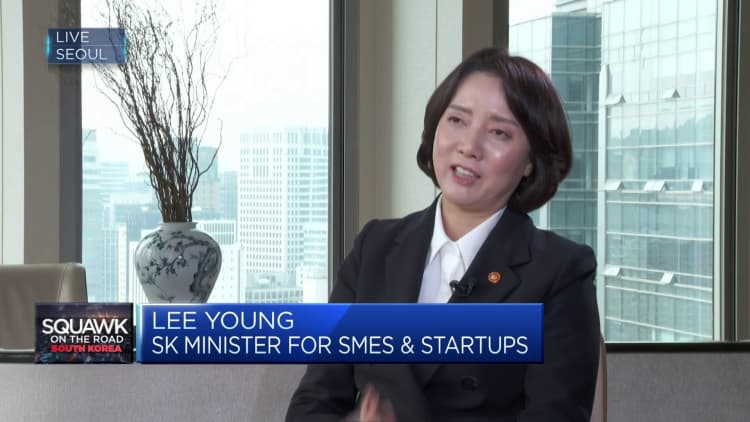Asia-Pacific markets fell on Wednesday as investors look ahead to U.S. inflation figures for clues on the path ahead for inflation and by extension, the U.S. Federal Reserve's moves.
Economists polled by Dow Jones expect inflation to have increased 0.4% month-over-month in April, and 5% year-over-year. Core prices, which exclude volatile food and energy components, are expected to have climbed 0.4%.
In Australia, the S&P/ASX 200 fell 0.12% to close at 7,255.7 after the country delivered its budget Tuesday night. Australia saw its first budget surplus since 2008.
Japan's Nikkei 225 was 0.41% down to end the day at 29,122.18, and the Topix also fell 0.55% to finish at 2,085.91. Mitsubishi Corp posted record earnings for a second-straight year, with net profit coming in above 1 trillion yen for the first time at 1.18 trillion yen ($8.72 billion).
South Korea's Kospi moved down 0.55% to close at 2,496.51 and the Kosdaq also closed 0.73% down at 829.74, even as the country saw its unemployment rate inch down to 2.6% in April.
Hong Kong's Hang Seng index extended its Tuesday losses as it slid 0.45%, while markets on mainland China were trading mixed. The Shanghai Composite fell 1.15% to close at 3,319.15, while the Shenzhen Component was the only outlier in the region and gained 0.13% to end at 11,140.19.
Overnight in the U.S., all three major indices fell, with the S&P 500 pulling back by 0.46% and the Nasdaq Composite dropping 0.6%. The Dow Jones Industrial Average saw a smaller decline, falling just 0.17%.
— CNBC's Brian Evans and Alex Harring contributed to this report




